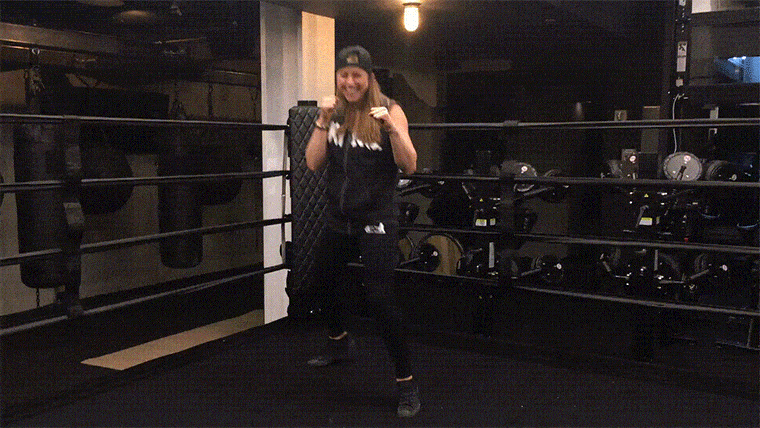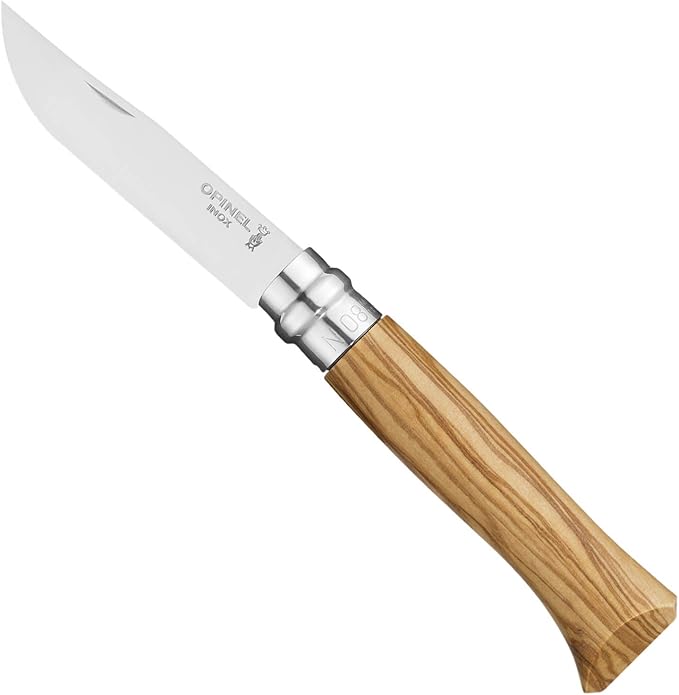For newbie boxers who are just starting to channel their inner Gigi Hadid, that first time stepping into a ring can be kind of (okay, really) intimidating.
One thing that can help, however, is having a few pro tips under your belt before you braid your hair and pull on a pair of lace-up leggings. For starters, “boxers don’t just punch a bag all day long—they need strength, conditioning, endurance, technique, and even yoga,” explains Nicole Schultz, vice president of development and head brand trainer at EverybodyFights boxing gym, which opened in New York City this week. (George Forman III is a founder, and the space features two rings, a 40-person bag room, a “road work” area with treadmills, and a section for strength training, FYI.) It’s why, she says, anyone can benefit from the sport.
“Boxers don’t just punch a bag all day long, they need strength, conditioning, endurance, technique, and even yoga.”
“Boxers are some of the best-conditioned athletes in the world. Whether or not you actually want to box, you can train like a professional would and get in amazing shape.”
And unlike in the movies, the first rule of any IRL fight club is safety, according to Schultz. “Two key aspects of boxing [are] ensuring your hands are properly wrapped and that you have the proper gloves,” she says. “The purpose of wrapping your hands [in strips of cloth] is to protect your knuckles and to support your wrists. Gloves are like shoes—the right [ones] depend a lot on personal preference. The sign of a good [set] is the ability to make a tight fist inside. I recommend 12–16 oz. gloves and trying on a few pairs to compare.”
After that, it’s all about learning to roll with the punches—and throw them, too.
To help you out, here are Schultz’s tips for mastering boxing’s main moves.
Footwork first
“A proper stance will allow you to transfer energy from the ground, through your core, and out of your fist into your target,” she explains. “The four key elements of stance are balance, angle, armor, and aiming.”
Knockout technique: Stand with your feet spread a few inches wider than your shoulders, slightly staggered so the foot opposite your dominant hand is in front and your weight is evenly balanced between both. The toes of your lead foot, shoulder, and hip should all be pointed toward your target and angled forward, partially blocking the rest of your body from your bag or opponent. Keep your fists raised to shoulder height, elbows loosely tucked into your ribs, and chin down so that it’s protected between your hands. Focus your gaze directly over your knuckles.
Perfecting your protection punch
“The jab is the most important punch in boxing, the closest and most direct [one] to your opponent,” Schultz says. “[It] starts in the legs, as energy is transferred from the rear foot, through the core, and out of the fist.”
Knockout technique: Assume your boxing stance. Extend the arm on your lead side (fist clenched) directly in front of you. Rotate your elbow upward, while turning your palm down, parallel to the ground, just before you reach full extension.
The secret to a serious cross
“[This] punch typically follows a jab or is used to counter,” explains the trainer. “Power comes from rotation through the hips.”
Knockout technique: Rotate your back hip forward, spinning your rear foot until your heel lifts. Allow the momentum to extend through your arm on the same side, rotating its palm toward the ground just prior to impact. Snap back to your starting stance once you’ve thrown your punch.
How to throw a hook
“The hook is one of the most-dangerous punches in boxing—it’s closer to your opponent than the [cross], but can be delivered with as much power if executed properly,” says Schultz
Knockout technique: Begin by rotating your rear hip forward and throwing a cross. Then counter rotate by pivoting on your lead leg and driving its heel into the ground. While you’re doing this, swing your lead fist forward—about 3 inches in front of your nose—elbow bent to 90 degrees, at shoulder height, and parallel to the ground. Pull it back immediately.
Now that you’ve got a few new skills, here are 6 common boxing class mistakes to avoid. Plus, another hardcore fighting workout models are super into at the moment: Muay Thai.
Share this content:
About The Author
Discover more from J and J Fitness
Subscribe to get the latest posts sent to your email.





